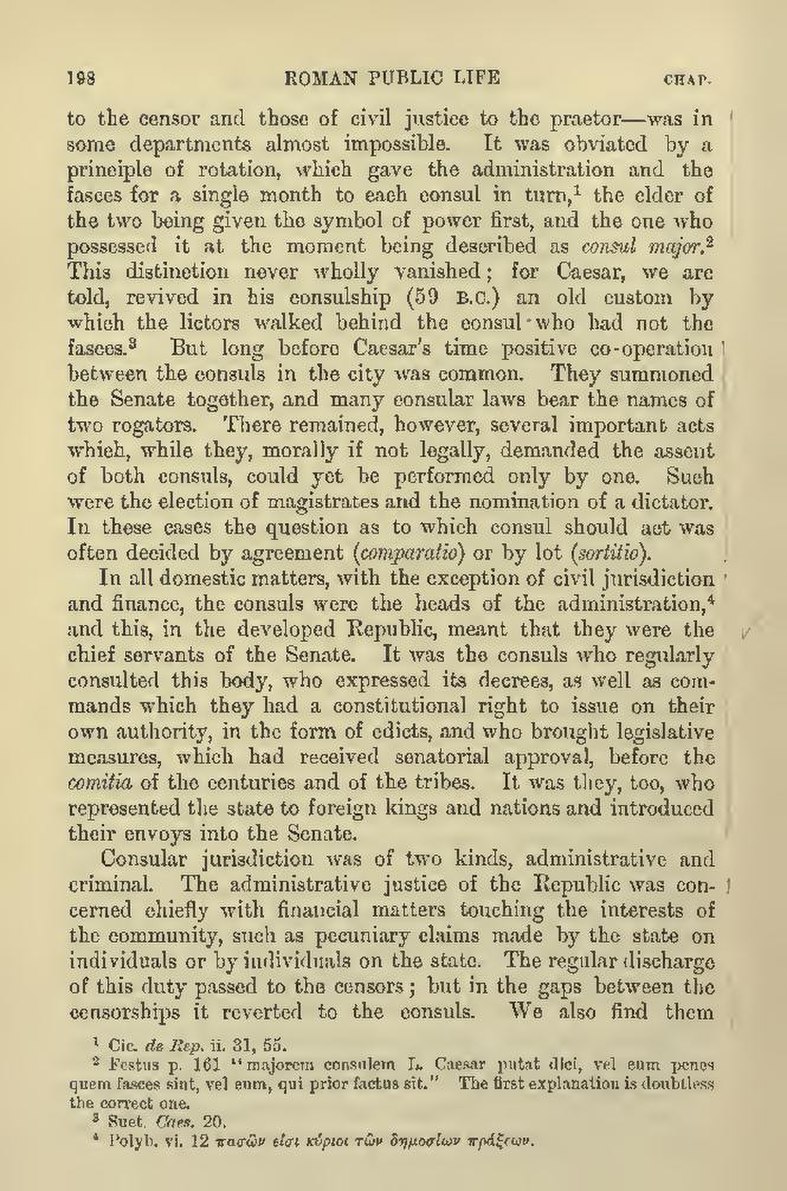to the censor and those of civil justice to the praetor—was in some departments almost impossible. It was obviated by a principle of rotation, which gave the administration and the fasces for a single month to each consul in turn,[1] the elder of the two being given the symbol of power first, and the one who possessed it at the moment being described as consul major.[2] This distinction never wholly vanished; for Caesar, we are told, revived in his consulship (59 B.C.) an old custom by which the lictors walked behind the consul who had not the fasces.[3] But long before Caesar's time positive co-operation between the consuls in the city was common. They summoned the Senate together, and many consular laws bear the names of two rogators. There remained, however, several important acts which, while they, morally if not legally, demanded the assent of both consuls, could yet be performed only by one. Such were the election of magistrates and the nomination of a dictator. In these cases the question as to which consul should act was often decided by agreement (comparatio) or by lot (sortitio).
In all domestic matters, with the exception of civil jurisdiction and finance, the consuls were the heads of the administration,[4] and this, in the developed Republic, meant that they were the chief servants of the Senate. It was the consuls who regularly consulted this body, who expressed its decrees, as well as commands which they had a constitutional right to issue on their own authority, in the form of edicts, and who brought legislative measures, which had received senatorial approval, before the comitia of the centuries and of the tribes. It was they, too, who represented the state to foreign kings and nations and introduced their envoys into the Senate.
Consular jurisdiction was of two kinds, administrative and criminal. The administrative justice of the Republic was concerned chiefly with financial matters touching the interests of the community, such as pecuniary claims made by the state on individuals or by individuals on the state. The regular discharge of this duty passed to the censors; but in the gaps between the censorships it reverted to the consuls. We also find them.]
